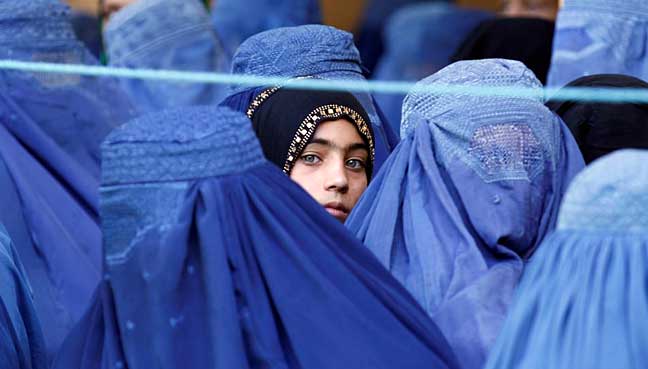Imagine being stripped of one of your most powerful tools of communication: your voice. For many women in Afghanistan, this has become their reality as the Taliban continues to pose a threat toward their basic rights.
The Taliban first held power from 1996 to 2001, during which they enforced strict interpretations of Islamic law and women faced limitations on their freedoms. An American-led invasion overthrew the group in 2001 and resulted in 20 years of a U.S.-backed government. After the Taliban’s removal, millions of Afghan women attended schools, joined the workforce and served in government positions. However, in August 2021, the Taliban made a swift return to power after the U.S. withdrew its remaining troops following a 2020 peace agreement. They have since taken actions similar to their brutal rule in the late 1990s, slowly putting an end to the hard-won rights of women over the past two decades.
On Aug. 21, supreme leader Hibatullah Akhundzada issued a strict set of “vice and virtue” laws. It is a 114 page, 35-article document that will allow the ministry to regulate personal conduct and administer punishments as deemed necessary.
Article 13 specifically relates to women. For example, it states that if a woman is to leave her home out of necessity, “she is duty-bound to hide her voice, face, and body.” Consequently, women’s voices are being silenced. They can’t speak, laugh, cry, sing, pray or recite the Quran in public because their voices are seen as potential instruments of vice or immoral character.
Additionally, the laws make it mandatory that women completely veil their bodies in thick clothing and wear face coverings in public in order to avoid leading men into temptation. It’s also forbidden for them to look directly at men they are not related to by blood or marriage, nor can they be in public without a male relative accompanying them.
Girls are banned from attending school after sixth grade, restricting 1.5 million women from access to higher education. Those who attempt to protest these laws are met with violent punishments such as beating, detentions, torture, rape, and death. Reports have been made of torture using electric shock and the rape of girls and women in jail.
Mandates have blocked women from employment in the U.S. and other non governmental organizations, which has made it difficult for humanitarian aid agencies to reach Afghan women and children in need. The Taliban also abolished the Afghanistan Independent Human Rights Commission, which investigated and reported alleged extrajudicial forms of violence and rights violations against women. They have closed all women’s shelters and domestic violence centers as well.
The vice and virtue laws provide an uncertain outlook on the future for women in Afghanistan. Their rights are being infringed upon and it appears that foreign aid is difficult to provide under the harsh new rules and punishments. Afghan women cannot retaliate without the power of their voices; unfortunately, a voice is exactly what was stolen from them.





















